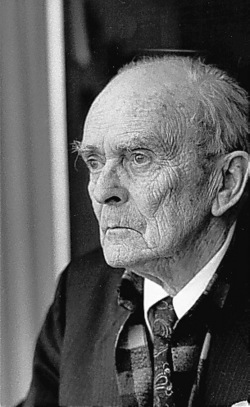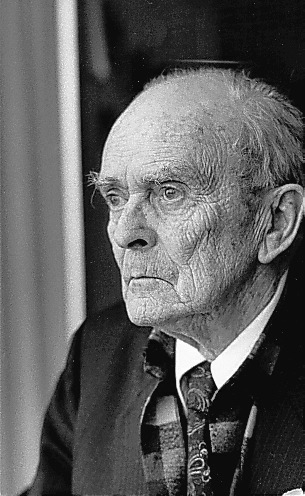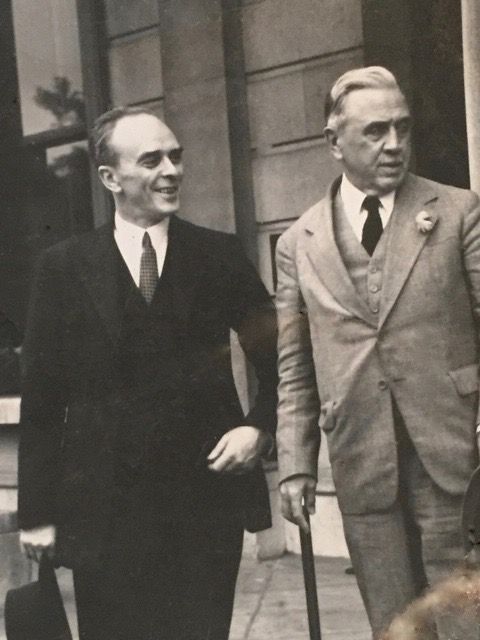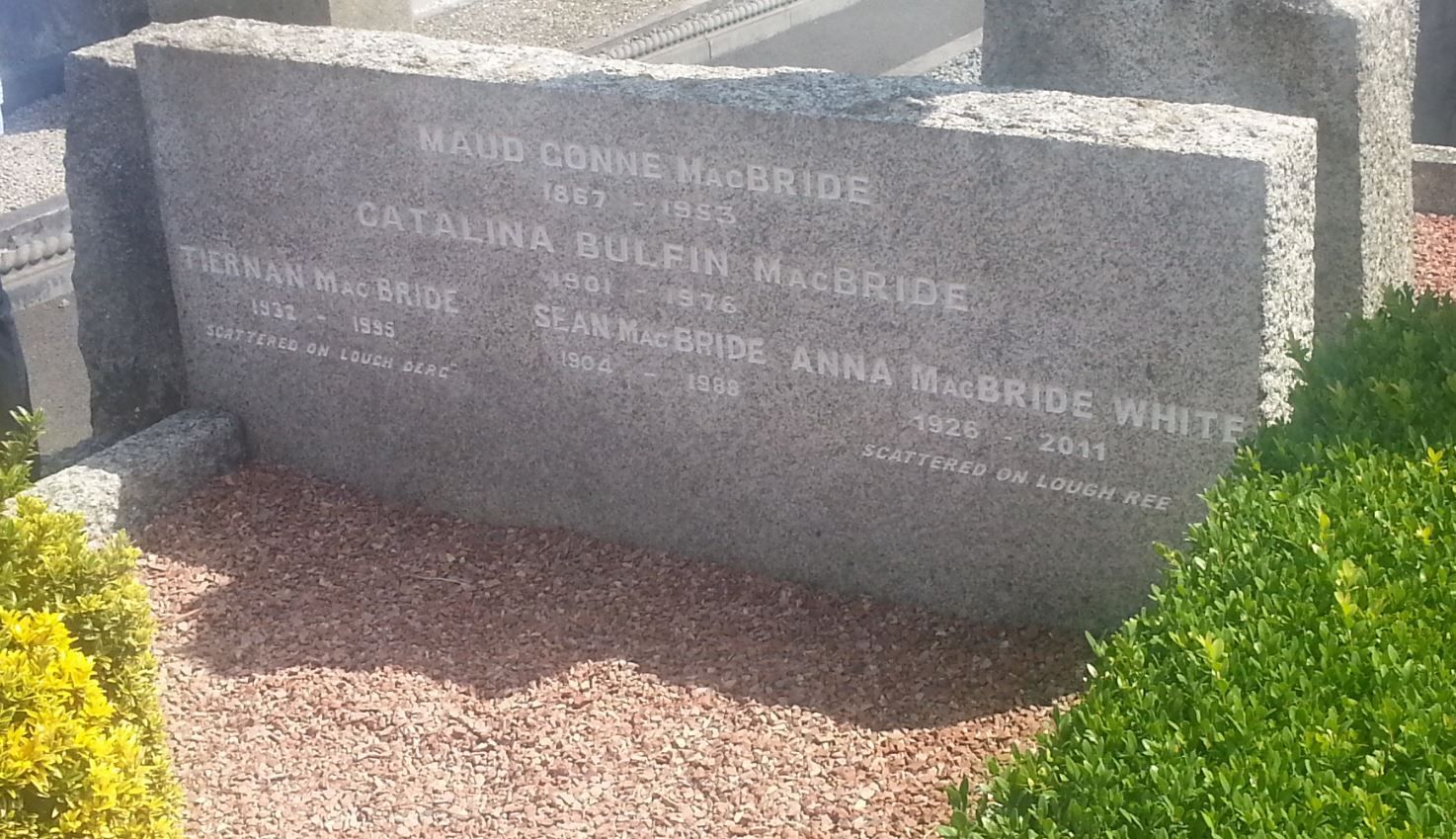Nobel Peace Prize Recipient, Irish Patriot. He is most remembered for his fight for human rights especially for the Irish people. He was co-recipient of the 1974 Nobel Peace Prize with Eisaku Sato and according the Nobel Prize committee, he received his coveted award "for his efforts to secure and develop human rights throughout the world". Besides the Nobel Peace Prize, he received the Soviet Union's International Lenin Peace Prize in May of 1977 and the UNESCO Silver Medal for Service in 1980. In his 70-year career that took him from Dublin streets battling with the British to the international award-ceremony podium in Oslo, Norway, MacBride's name was linked, often controversially, with such causes as Irish nationalism, a united Europe, nuclear disarmament, and human rights. He was the second recipient of both the Nobel Peace and the Lenin Peace prize, the first having been Dr. Linus Pauling of the United States. His career embraced journalism, law, politics and diplomacy. He was Ireland's Foreign Minister from 1948 to 1951 and an Assistant Secretary General of the United Nations and United Nations Commissioner for Namibia, or South-West Africa, from 1973 to 1976. He was a founder of Amnesty International in 1961 serving as chairman until 1975. Almost simultaneously, from 1963 to 1970, he was secretary general of the International Commission of Jurists and remained a member of that rights group until his death. He was the son of Major John MacBride, who was executed in 1916 by the British for his part in the Easter Uprising in Dublin, and Maude Gonne, a beautiful actress that was called the "Joan of Arc of Ireland" for her revolutionary efforts. For their safety, his mother escaped Ireland to Paris, France; gave birth to MacBride and educated him in Paris; and then brought him to Ireland in 1916 after his father was executed. Following his father's footsteps, MacBride joined what would become the forerunners of the Irish Republican Army, a year later was arrested for the first of many times by the British, and sent to prison in 1918, 1922 and 1930. Although he spent 20 years ''on the run'' from the British as part of the IRA, he earned a law degree then ended his association with the IRA. In 1937 he advanced quickly in seven years to senior counselor. From law, he advanced into Irish politics, which was dominated since 1932 by Prime Minister Eamon de Valera's Fianna Fail Party. Before the 1948 elections, he formed a new and radical party, the Republican Party, and in cooperation with other opposition parties, MacBride managed to unseat Prime Minister de Valera. As an award, he was made Foreign Ministry, which took him into the international arena for the rest of his life. He was elected to Parliament in 1947, served until 1958, but his party disappeared as a political force in Ireland in 1965. Foreign Minister MacBride was named in 1948 as vice president of the forerunner of the European Economic Community, which rebuilt Europe after World War II. He held the post until 1951 and served in 1950 as the president of the Council of Foreign Ministers of the Council of Europe. As an elderly man in 1984, he was still fighting for his cause by being the chief sponsor of an anti-discrimination code known as the MacBride Principles. Aimed at forcing American companies operating in Northern Ireland to insure equal employment opportunities for Roman Catholics, the code was much debated in Ireland, Britain, and the United States. He died of pneumonia and was survived by a son and a daughter.
Nobel Peace Prize Recipient, Irish Patriot. He is most remembered for his fight for human rights especially for the Irish people. He was co-recipient of the 1974 Nobel Peace Prize with Eisaku Sato and according the Nobel Prize committee, he received his coveted award "for his efforts to secure and develop human rights throughout the world". Besides the Nobel Peace Prize, he received the Soviet Union's International Lenin Peace Prize in May of 1977 and the UNESCO Silver Medal for Service in 1980. In his 70-year career that took him from Dublin streets battling with the British to the international award-ceremony podium in Oslo, Norway, MacBride's name was linked, often controversially, with such causes as Irish nationalism, a united Europe, nuclear disarmament, and human rights. He was the second recipient of both the Nobel Peace and the Lenin Peace prize, the first having been Dr. Linus Pauling of the United States. His career embraced journalism, law, politics and diplomacy. He was Ireland's Foreign Minister from 1948 to 1951 and an Assistant Secretary General of the United Nations and United Nations Commissioner for Namibia, or South-West Africa, from 1973 to 1976. He was a founder of Amnesty International in 1961 serving as chairman until 1975. Almost simultaneously, from 1963 to 1970, he was secretary general of the International Commission of Jurists and remained a member of that rights group until his death. He was the son of Major John MacBride, who was executed in 1916 by the British for his part in the Easter Uprising in Dublin, and Maude Gonne, a beautiful actress that was called the "Joan of Arc of Ireland" for her revolutionary efforts. For their safety, his mother escaped Ireland to Paris, France; gave birth to MacBride and educated him in Paris; and then brought him to Ireland in 1916 after his father was executed. Following his father's footsteps, MacBride joined what would become the forerunners of the Irish Republican Army, a year later was arrested for the first of many times by the British, and sent to prison in 1918, 1922 and 1930. Although he spent 20 years ''on the run'' from the British as part of the IRA, he earned a law degree then ended his association with the IRA. In 1937 he advanced quickly in seven years to senior counselor. From law, he advanced into Irish politics, which was dominated since 1932 by Prime Minister Eamon de Valera's Fianna Fail Party. Before the 1948 elections, he formed a new and radical party, the Republican Party, and in cooperation with other opposition parties, MacBride managed to unseat Prime Minister de Valera. As an award, he was made Foreign Ministry, which took him into the international arena for the rest of his life. He was elected to Parliament in 1947, served until 1958, but his party disappeared as a political force in Ireland in 1965. Foreign Minister MacBride was named in 1948 as vice president of the forerunner of the European Economic Community, which rebuilt Europe after World War II. He held the post until 1951 and served in 1950 as the president of the Council of Foreign Ministers of the Council of Europe. As an elderly man in 1984, he was still fighting for his cause by being the chief sponsor of an anti-discrimination code known as the MacBride Principles. Aimed at forcing American companies operating in Northern Ireland to insure equal employment opportunities for Roman Catholics, the code was much debated in Ireland, Britain, and the United States. He died of pneumonia and was survived by a son and a daughter.
Bio by: Linda Davis
Family Members
Advertisement
See more MacBride memorials in:
Records on Ancestry
Sponsored by Ancestry
Advertisement











